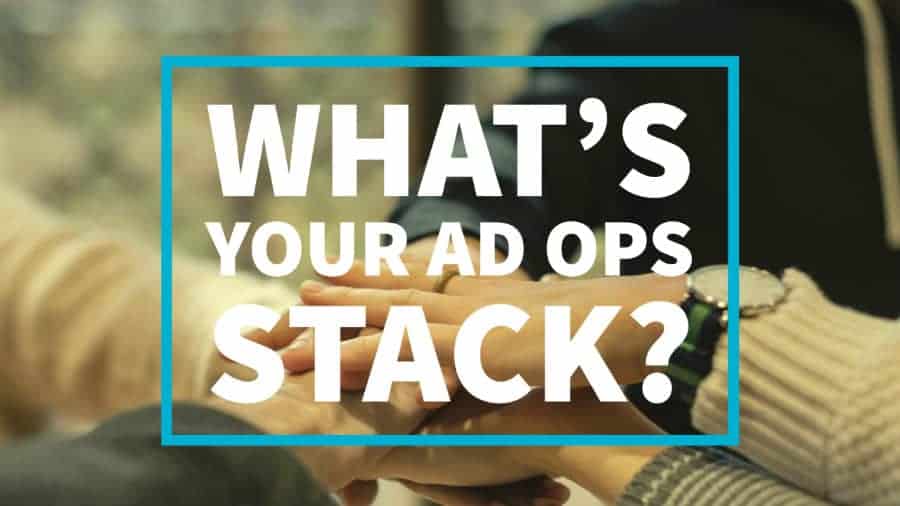
This post was most recently updated on September 26th, 2019
The primary objective of planning your ad stack is to maximize revenue by filling up as much of your inventory as possible with high CPM offers and backfilling remnant inventory with low CPM ones.
 Some publishers start with just Adsense hardcoded on the site, and they might even be generating a decent income.
Some publishers start with just Adsense hardcoded on the site, and they might even be generating a decent income.
However, is that all there is to it? Not really.
Your ad stack is not a one size fits all setup. That’s why you need to find the perfect balance between your target revenue and your ad offers. The number of offers that you can run in your stack depends on how big your site is.
For small publishers (less than 5M page views per month), AdSense, one 100% fill ad network, and one or two remnant inventory is usually a suitable combination.
This setup enables a publisher to create auction pressure thus increasing CPMs without sacrificing the fill.
Direct deals usually earn the highest CPMs because you can negotiate rates for a fixed price.
 Header bidding is an advanced programmatic technique wherein publishers offer their ad inventory to multiple ad exchanges simultaneously before making calls to their ad servers (mostly DoubleClick for Publishers).
Header bidding is an advanced programmatic technique wherein publishers offer their ad inventory to multiple ad exchanges simultaneously before making calls to their ad servers (mostly DoubleClick for Publishers).
By allowing multiple demand sources to bid on the same inventory at the same time, publishers increase their yield and make more money.
The downside to header bidding is that it causes page load times to be longer. Each tag that a publisher plugs into its page is yet another potential source of added page latency.
When setting up header bids, it’s always a good idea to start with two bidders and check for latency before adding more.
Find out more about MonetizeMore’s header bidding solution called PubGuru Header Bidding.
Both AdSense and AdExchange can be used for dynamic allocation of networks, but AdExchange provides better controls and reports for monitoring.
Find out how to join the Google Ad Exchange network.
Publishers may also opt to work with 3rd party networks but need to monitor their performance separately.
See our list of the best ad networks for 2018.
It’s quite tempting to work with as many as possible. However, you should take note that it can cause longer load times as you add more networks to the mix. Also, ad network offers vary regarding CPM and fill rate.
To generate the highest revenue, publishers need to work primarily with networks that offer the highest CPM but should also maximize their fill rate by utilizing the ones with lower CPM rates.
Navigating the ad optimization landscape, understanding ad tech and finding the right companies to partner with can be complicated.
Why not let the experts help? Contact MonetizeMore for a free consultation, and our team can help you determine the best course of action to maximize revenues for your business in 2018!

Kean Graham is the CEO and founder of MonetizeMore & a pioneer in the Adtech Industry. He is the resident expert in Ad Optimization, covering areas like Adsense Optimization,GAM Management, and third-party ad network partnerships. Kean believes in the supremacy of direct publisher deals and holistic optimization as keys to effective and consistent ad revenue increases.
10X your ad revenue with our award-winning solutions.